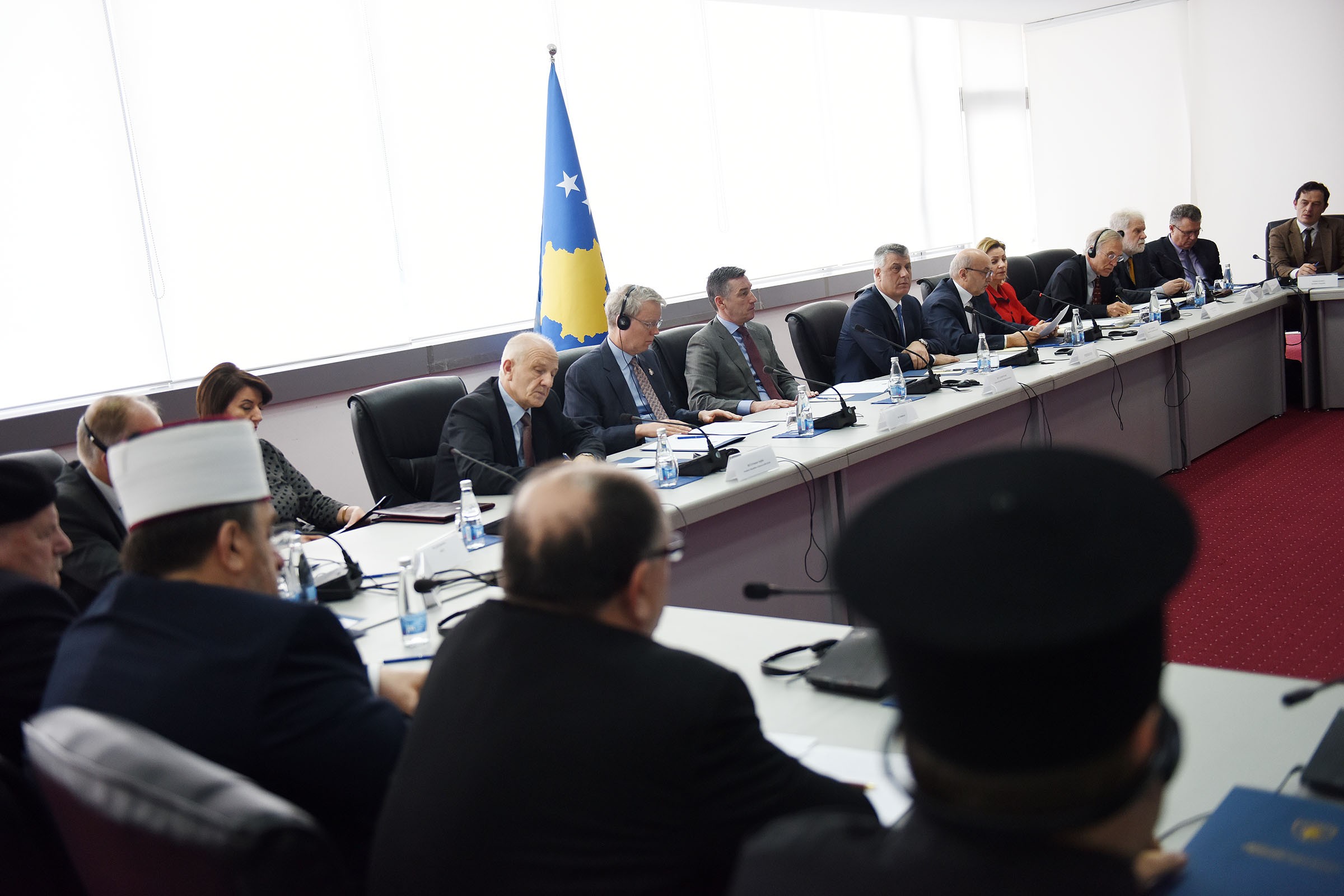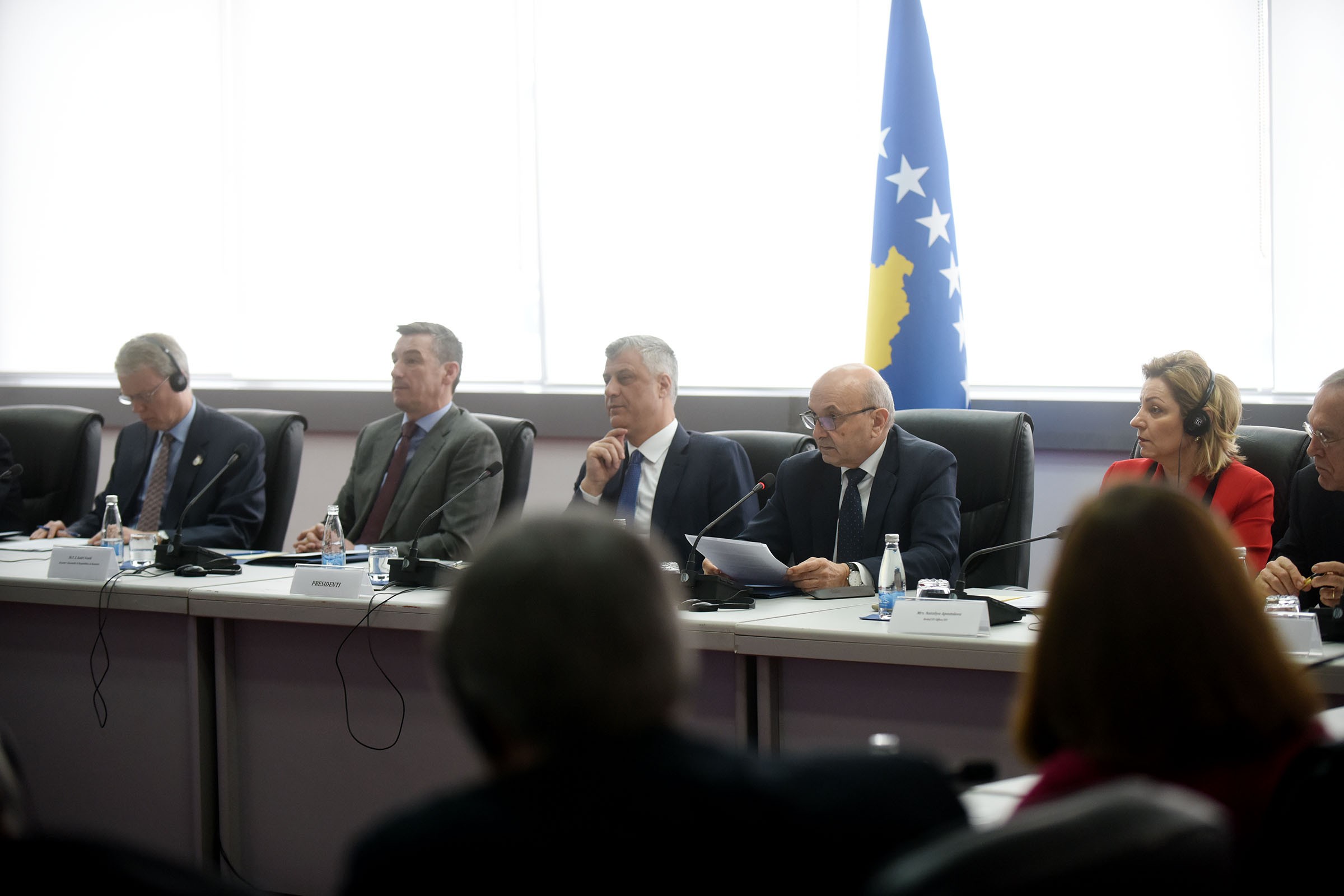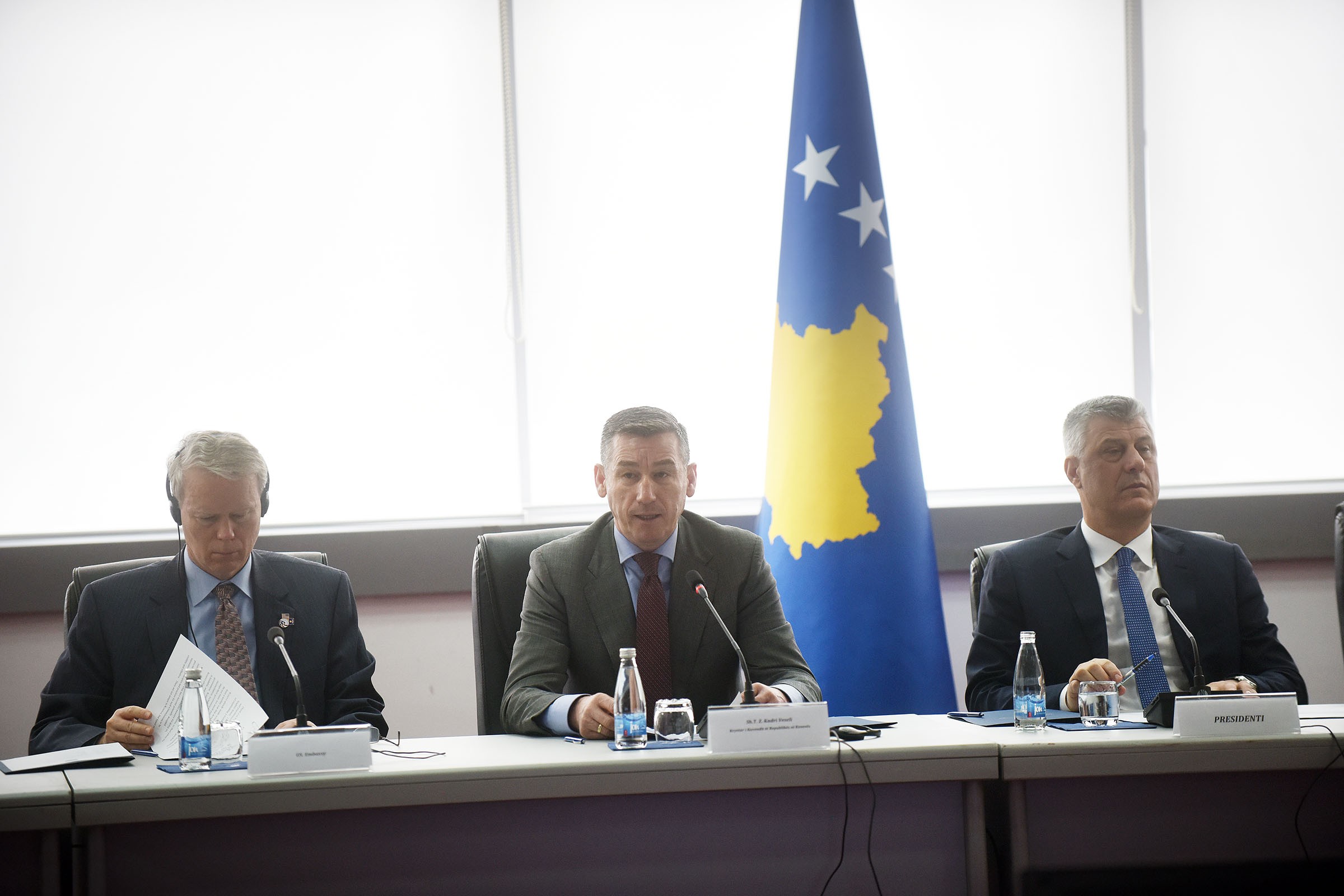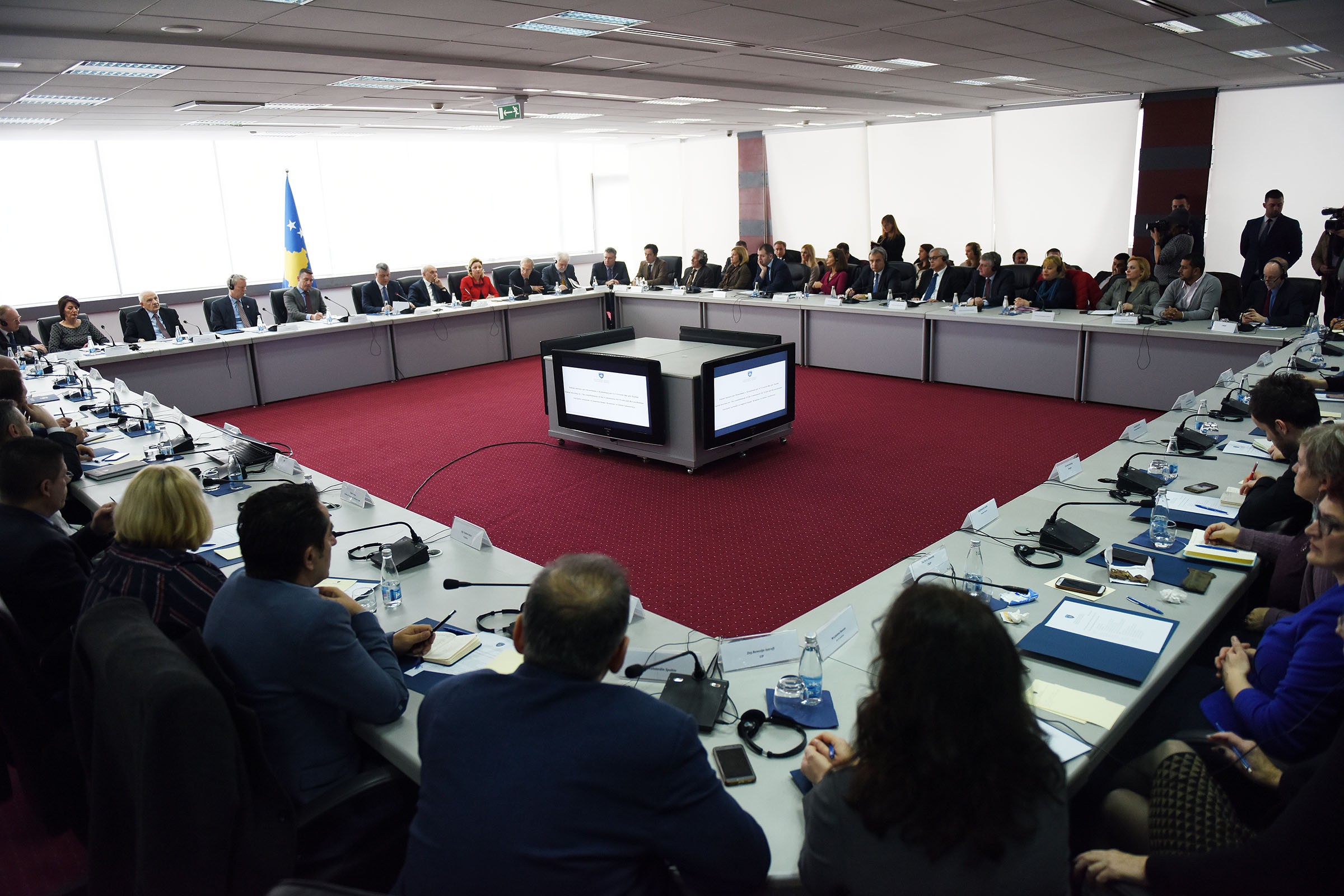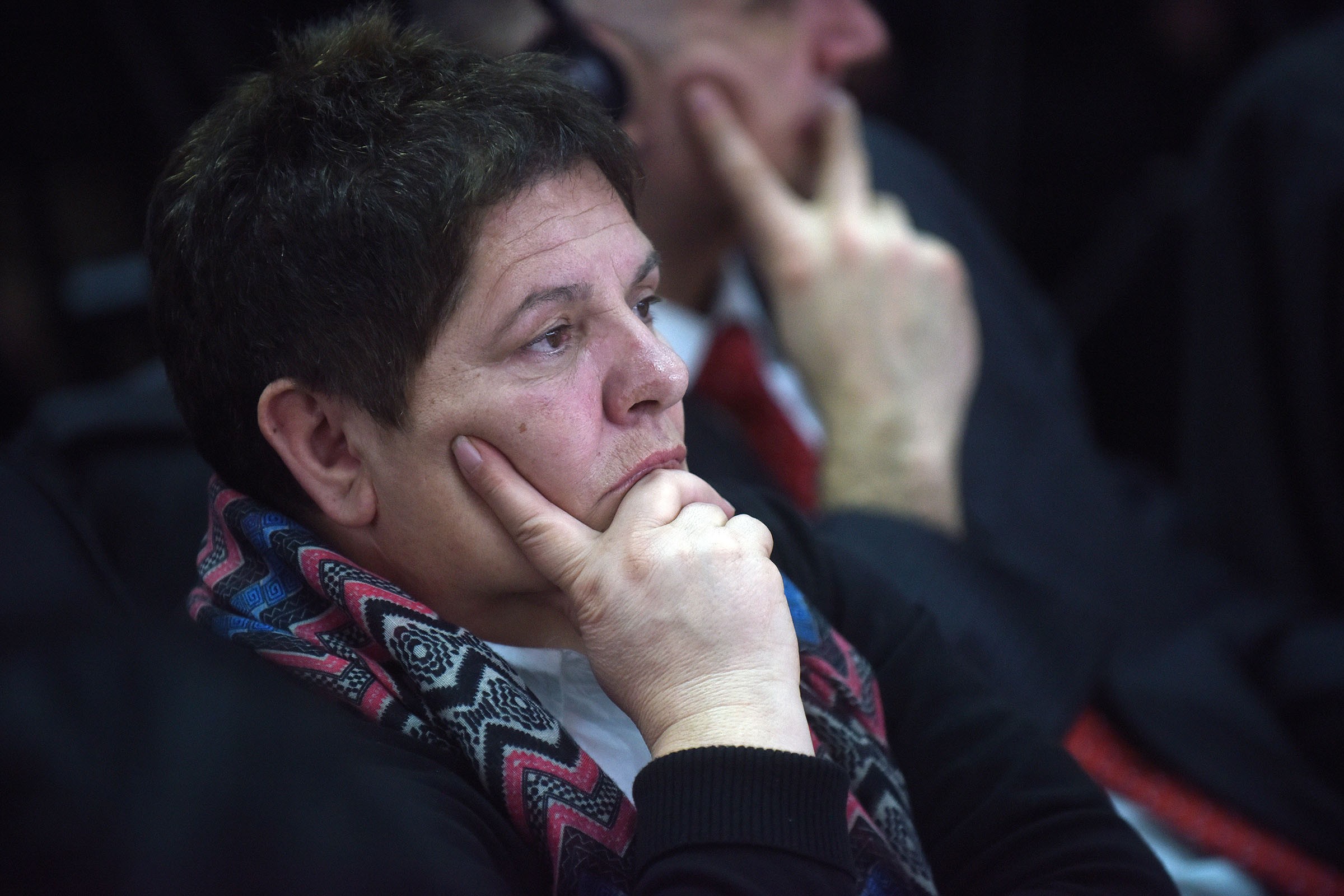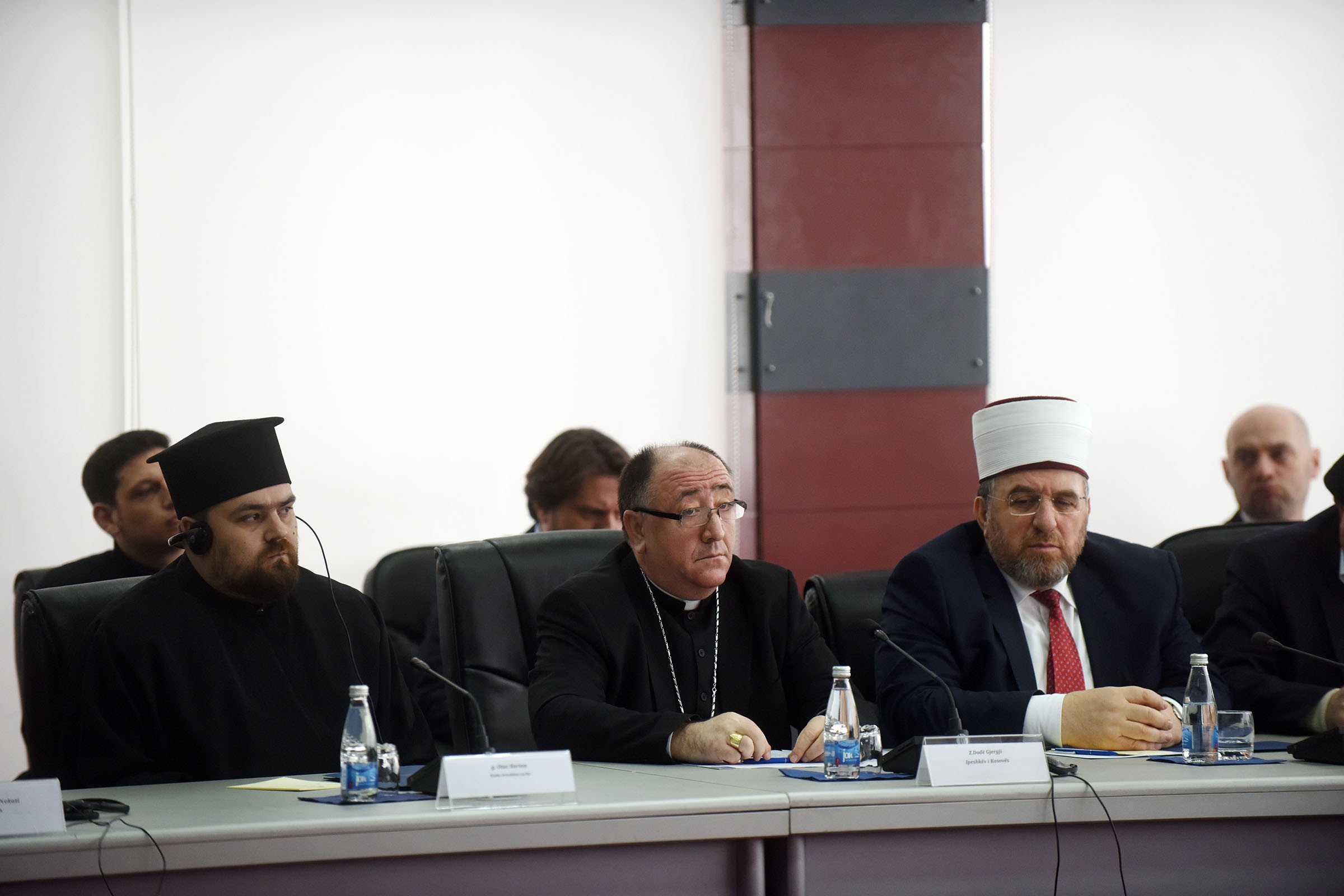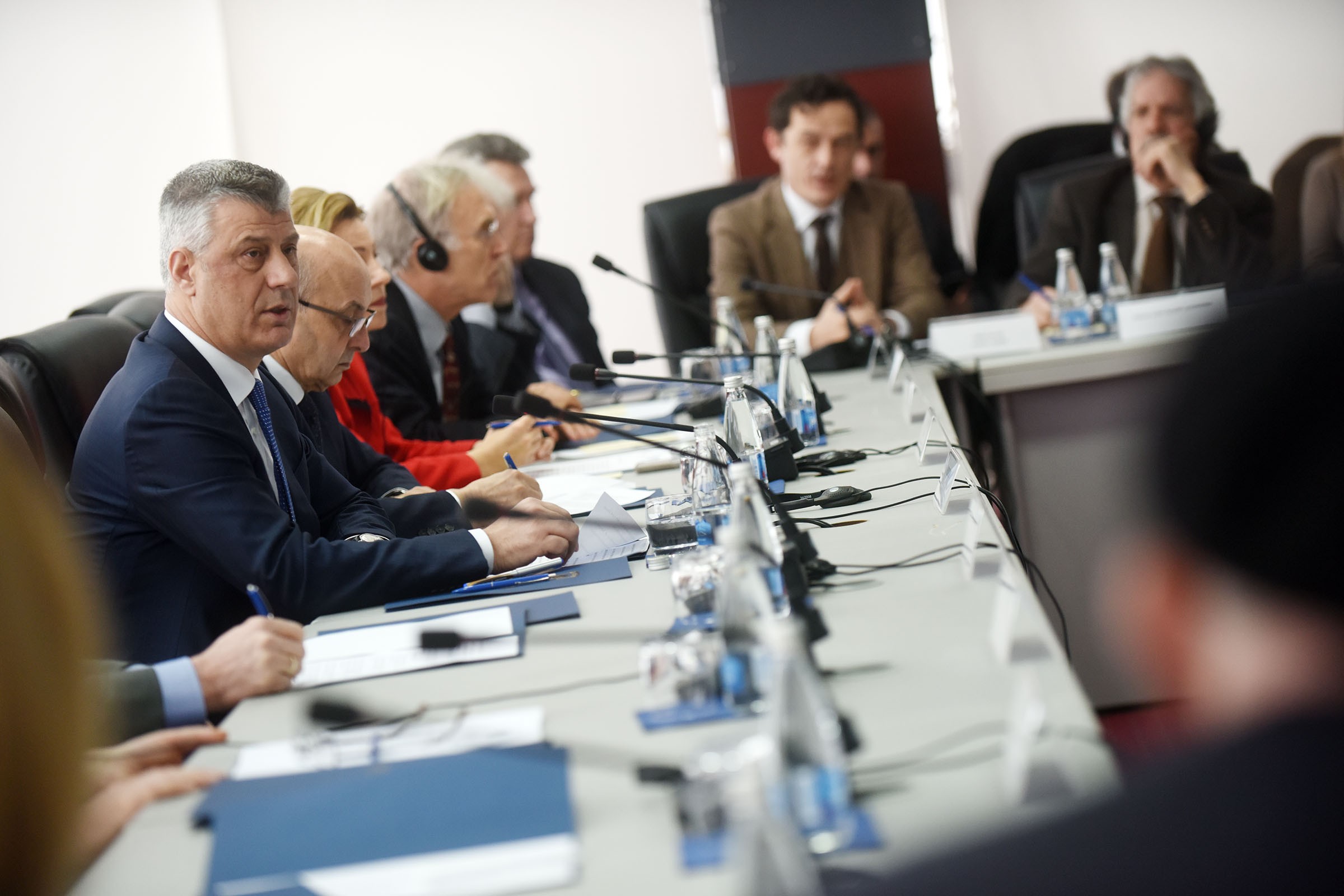Prishtina, 13 February 2017 – President of Kosovo, Hashim Thaçi, brought together highest state officials, religious clerics, the diplomatic corps, heads of judicial institutions and civil society to a consultative meeting on the establishment of the Commission for Truth and Reconciliation.
President Thaçi stated that meeting with families of missing persons, belonging to all communities, have been very significant to this initiative.
I have noticed from them that the pain united them; they have known each through their pain. They are familiar with their cause. First and fastest Albanian-Serb reconciliation occurred between family members of the missing persons. Recognizing each other's suffering made them become almost like a family working for a common goal, closing the chapter of their missing family members. They are the best example for the rest of us on how to turn our eyes toward a future to close the chapter of the past, “stated President Thaçi.
President said that the truth cleans and frees people, and helps and lead to reconciliation between nations and states.
“The truth heals societies from revenge and hatred “, stated President Thaçi.
According to President Thaçi, the goal is to start a new life for all citizens, by forgiving but not forgetting, by recognising and admitting crimes, and by expressing pangs against evil.
“This will not sacrifice justice, but it will help. Recognising the truth is essential for justice. This does not mean crime atonement, cleansing from evil, or someone to hide behind ignorance, falsehood, silence or concealment of crime. The truth must be known, regardless how bitter or ugly may be”, stated President Thaçi.
Below is the speech of President Thaçi at the consultative meeting on the establishment of the Commission for Truth and Reconciliation:
Honourable Speaker of the Assembly, Mr. Kadri Veseli,
Honourable Prime Minister of Kosovo, Mr. Isa Mustafa,
Honourable Ambassador Delawie,
Honourable Ambassador Apostolova,
Honourable Ambassador Brathu,
Honourable ministers, ambassadors, members of parliament, friends and supporters of Kosovo
Professionals from civil society, media, academia,
Ladies and gentleman,
This year marks the 18 years, i.e. almost 2 decades, since the end of war in Kosovo, nine years from independence.
It is true that we have a long way since then.
Kosovo is built. Our destroyed cities, villages, and homes are rebuilt.
We built democratic and rule of law institutions.
We established the police forces, which are today considered as the best and most just in the Balkans.
In fact, at first glance, today in Kosovo one may not see any sign that only two decades ago there was war here.
However, the horrors of war and the grief for the life lost, our beloved ones killed or missing, are not vanished.
Many mothers, whether Albanian, Serbian and from other communities, want to know where their sons and daughters are.
Still there is a gap between communities and this gap can still keep us in the depths of hatred and hostility caused by war.
Let me briefly reflect on a visit I had a few days before in Brezovica. There I met many Serbs. Some of them worked at the ski centre, many of them were unemployed. They share the same worries and concerns as their fellow citizens Albanians.
Citizens of Kosovo, according to all surveys made, have the same concerns: the new jobs, economic standard, a better life for their children and their children's children.
I believe that you agree that something important has not been addressed in post-war Kosovo.
Pain caused by the war still weighs on the hearts and minds of every Kosovo.
Divisions and fears that caused the war are still alive.
Animosities that caused the war are still alive.
Language and vocabulary triggered by these animosities, that have caused war, still dominate our society discourse.
Kosovo and the Balkans society as a whole is still hostage to these old narratives.
It is very painful to see that today, the generations born after the war, see other party, see peers from other community, as enemies and danger,
and, not as a neighbour, as fellow citizens.
Kosovo society cannot build a better future if it remains hostage to the past.
Ladies and gentlemen,
I have invited you here today to introduce you with my idea for the foundation on which to build a better future for all of us.
To tell the truth and agree to our past.
And on this truth and reconciliation, then build our future.
I myself have been in war and I saw and experienced the horrors of war.
I saw the devastation of war, hatred caused by war.
During the war I have built my belief by committing myself to not allow these horrors to be repeated,
to anyone.
Also, I have seen and experienced that suffering is the same, for each parent, for each child for each siblings, regardless of their nationality.
Suffering of a Albanian family does not differ from the suffering of Serb or Roma family when it comes to their beloved.
As President of Kosovo, meetings I had with families of the missing persons, from all communities, have been very significant.
I have noticed that their pain united them; they have known each other through their pain. They are familiar with their cause.
First and fastest Albanian-Serb reconciliation occurred between family members of the missing persons.
Recognizing each other's suffering made them become almost like a family working for a common goal, closing the chapter of their missing family members.
They are the best example for the rest of us on how to turn our eyes toward a future and to close the chapter of the past.
The truth cleans and frees people, and helps and leads to reconciliation between nations and states.
The truth heals societies from revenge and hatred.
The goal here is to start a new life for all citizens, by forgiving but not forgetting, by recognising and admitting crimes, and by expressing pangs against evil.
This will not sacrifice justice, but it will help.
Recognising the truth is essential for justice.
This does not mean crime atonement, cleansing from evil, or someone to hide behind ignorance, falsehood, silence or concealment of crime.
The truth must be known, regardless how bitter or ugly may be.
Younger generations need to know, what did the previous generations; children need to know more for their parents.
Mutual trust must be earned, not by denying, but by taking responsibility,
respecting the dignity and integrity of the parties.
This initiative and this first consultative meeting follow many consultations that I made with leaders of reconciliation around the world, including laureates of Nobel Prize for peace.
I have discussed and thought thoroughly on how to initiate such a process of public support, and how to start the process of truth and reconciliation.
I met many Albanians, Serbs, Turks, Roma, Ashkali and Egyptians to discuss this idea and this concept.
The forum we aim to establish does not replace the justice (judiciary).
There will be no compromise with justice, because the truth emanates from justice.
This forum will also not be a substitute for dialogue between Kosovo and Serbia in Brussels, but it will be a facilitator to reaching new agreements for interstate reconciliation.
One might ask if this what we are doing today is too late?
It's true that we're late, but we are the first in the Balkans, therefore, I wish that Kosovo will be a model for others.
One might ask whether the apology shall take place first, and then the reconciliation?
But, dear guests, truth and reconciliation are not achieved with conditions, but with good will and good feeling.
The Commission on Truth and Reconciliation is not seeking to replicate the methodology of other instruments of no country in the world.
Kosovo and the Balkans have their own specifications.
Our goal is to establish a support mechanism to a open internal dialogue between the communities in Kosovo to the painful past and to establish a sound basis of reconciliation.
Reconciliation cannot be based on forgetfulness of evil.
Forgiveness is memory – to remember and not to use the right of retaliation.
It's a second chance to a new beginning. And remembering the painful past is an important part of the new beginning,
especially, if we do not want to prevent the past from repeating.
Let me add that this meeting today is of a consultative format.
It is the first step towards a long journey.
We look forward to the contribution of Kosovo's friends, religious communities and from civil society as a whole.
From the outset, we will allocate a budget to support initiatives to this process coming from civil society and I will incorporate this in my meetings throughout Kosovo even talk about reconciliation and truth.
I encourage you all to help us in this process.
Thank you!

